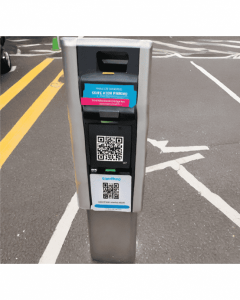Buy Now, Pay Later: £2.7 Billion ‘Shadow Credit’ Boom Leaves 3.1 Million borrowers in Debt Time Bomb
More than 3 million UK households find themselves owing a staggering £2.7 billion through 'buy now, pay later' (BNPL) borrowing, as unveiled by a recent analysis conducted by economists at the Bank of England. The findings, derived from a survey in March 2023, bring to light the prevalence of this unregulated financial practice, with a particular focus on the age group most likely to engage in it - individuals aged between 25 and 34.
The analysis, authored by Bank of England economists Gerry Gunner and James Waddell, emphasizes the potential financial vulnerability of BNPL users, raising concerns about a looming crisis for borrowers. The report, titled "Shining light on 'shadow credit' - what is buy now pay later and who uses it?" delves into the details of BNPL usage in the UK, revealing that 11 percent of households, equivalent to 3.1 million across the nation, reported being in debt due to BNPL usage. With an average balance of £866, the cumulative debt amounts to £2.7 billion.
The study indicates that a significant portion of users may not fully comprehend the financial burden they are undertaking when utilizing BNPL services. Younger individuals and renters are identified as the primary users of BNPL, both groups typically associated with less resilient financial circumstances. Moreover, 68 percent of BNPL users express concerns about their borrowing, compared to 45 percent of other borrowers. Disturbingly, BNPL users are more prone to falling behind on repayments, with 21 percent reporting arrears compared to only 6 percent of other borrowers.
The surge in BNPL usage is primarily fueled by its availability through various start-up fintech firms, many of which operate outside regulatory oversight, charging retailers a fee instead of interest on repayments. While some established lenders offer regulated BNPL products with interest charges, the unregulated nature of this borrowing method has raised significant concerns. Additionally, the research highlights the lack of clear correlation between BNPL usage and household income, with individuals earning £45,000-£54,000 being the most likely to report usage.
The report underscores the need for increased transparency and regulation in the BNPL sector, as the current lack of publicly available data further exacerbates the issue. As the popularity of BNPL continues to grow, it is clear that urgent measures are required to ensure the financial well-being of consumers and to prevent a potential crisis in the borrowing landscape.
Buy Now, Pay Later: £2.7 Billion ‘Shadow Credit’ Boom Leaves 3.1 Million borrowers in Debt Time Bomb
Beware the Rising Cashless Parking Scam: Protect Yourself from QR Code Fraud
Stay vigilant against the increasing threat of QR code scams in cashless parking systems. Learn how to spot and avoid falling victim to fraudulent QR codes.
Stay vigilant against the increasing threat of QR code scams in cashless parking systems. Learn how to spot and avoid falling victim to fraudulent QR codes.
Read moreLloyds Bank Warns of Booking.com and Airbnb Scams
Stay safe this summer! Lloyds Bank alerts customers to potential fraud on Booking.com and Airbnb. Protect your vacation plans.
Stay safe this summer! Lloyds Bank alerts customers to potential fraud on Booking.com and Airbnb. Protect your vacation plans.
Read moreNew SME Savings Tracker Exposes Huge Gap in Rates Offered by Big vs. Digital Banks
Discover the shocking disparity in savings rates for SMEs between traditional big banks and innovative digital and challenger banks.
Discover the shocking disparity in savings rates for SMEs between traditional big banks and innovative digital and challenger banks.
Read moreLife Insurers Prepare for Limited Investment Options Amid Tightening ESG Rules
Ortec Finance study shows 80% of insurers foresee fewer investment opportunities by 2026 due to ESG regulations. Stay informed on industry changes.
Ortec Finance study shows 80% of insurers foresee fewer investment opportunities by 2026 due to ESG regulations. Stay informed on industry changes.
Read moreCanadians Overpaying Billions in Bank Fees, Report Finds
A recent report from consultancy North Economics has shed light on the excessive bank fees that Canadians are facing, revealing that they are overpaying by billions of dollars each year. The report compared fees at the Canadian Big Five banks — RBC, TD, BMO, CIBC, and Scotiabank — with those in the U.K. and Australia, showing a significant disparity in costs.
A recent report from consultancy North Economics has shed light on the excessive bank fees that Canadians are facing, revealing that they are overpaying by billions of dollars each year. The report compared fees at the Canadian Big Five banks — RBC, TD, BMO, CIBC, and Scotiabank — with those in the U.K. and Australia, showing a significant disparity in costs.
Read moreWatson Report Reveals Trend of Tax Minimization in Switzerland
Discover how individuals in Switzerland are using "letterbox apartments" to lower their tax burden in low-tax areas.
Discover how individuals in Switzerland are using "letterbox apartments" to lower their tax burden in low-tax areas.
Read moreCredit Spreads Tighten as Market Confidence Grows
Discover why credit spreads over US Treasuries are falling as the market gains confidence. Stay informed with our latest analysis.
Discover why credit spreads over US Treasuries are falling as the market gains confidence. Stay informed with our latest analysis.
Read moreHow AI is Revolutionizing SMB Lending: Insights from Uplinq White Paper
Discover how financial institutions and fintechs are using AI technology to automate lending decisions in the SMB space.
Discover how financial institutions and fintechs are using AI technology to automate lending decisions in the SMB space.
Read moreCredit Card Companies Charging Record-High Interest Rates - CFPB Report
The Consumer Financial Protection Bureau reveals credit card companies are charging record-high interest rates, costing customers an extra $25 billion annually.
The Consumer Financial Protection Bureau reveals credit card companies are charging record-high interest rates, costing customers an extra $25 billion annually.
Read more








